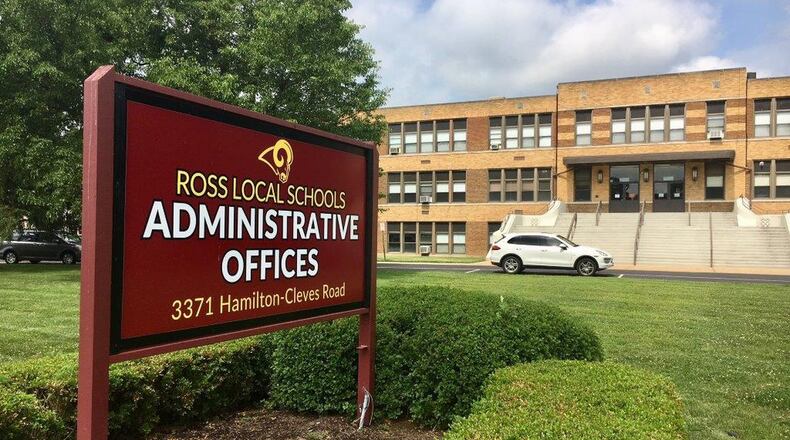Days earlier, the board reversed the Butler County district’s earlier decision to join five other area school systems backing a 1.5-mill school security tax as part of a formation of a school taxing district now allowed under a recent change in Ohio law.
School officials said they didn’t want to overload local residents with two school tax issues on the ballot.
Ross officials said the 0.5 percent earned income tax — should it win local voter approval on Nov. 6 — would fund the security upgrades needed in the 2,800-student district as well as restore all high school busing and cover other operational costs.
Ross already has a permanent .75 percent earned income tax helping to fund the largely rural school system. The school taxing option is rarely used among Ohio’s 613 public school districts.
“This additional 0.5 percent (tax issue) builds on our current earned income tax,” said Ross Schools Superintendent Scott Gates.
“During our last community engagement (town hall) meeting in July, we polled participants on their preference of an earned income or property tax. There was overwhelming support for moving forward with an earned income tax levy,” said Gates.
An earned income tax is assessed against salaries, wages, and self-employment earnings only. All other types of income such as pensions and interest income are excluded from the tax.
Should the proposed tax win voter approval it will begin to collecting in 2019.
The cost per household — if residents are not exempt by law — is determined by the earned income levels of the residents in the family.
“The Ross school district has not had a levy on the ballot for over twelve years, so this money will be used for operating expenses,” said Gates.
In recent years Ross schools have consistently scored among the highest in the state’s annual report card rankings among all Southwest Ohio school systems.
“In additional to maintaining current operating expenses, funds generated through the levy will be used for additional curricular opportunities for students at all grade levels with a focus on college and career preparedness. These opportunities include developing student internships and community service programs,” he said.
In June Ross officials had told the Butler County Educational Services Center (BCESC) it intended to join five other districts on the fall ballot: Fairfield; Hamilton; Edgewood; Monroe; New Miami in offering a 1.5-mill property tax increase to solely fund school security.
Gates said “in light of recent security concerns, additional funding generated from the (earned income tax) will allow the district to make necessary safety improvements to our facilities and staffing.”
“Staffing would include security personnel, counseling support and mental health staffing. Because safety and security improvements have been taken into account with the (income tax), the board opted out of the BCESC safety levy,” he said.
“The board felt that the presentation of the BCESC safety levy on the ballot at the same time as the district earned income tax levy’s presentation would create an undue burden to the taxpayers of the district,” said Gates.
About the Author
